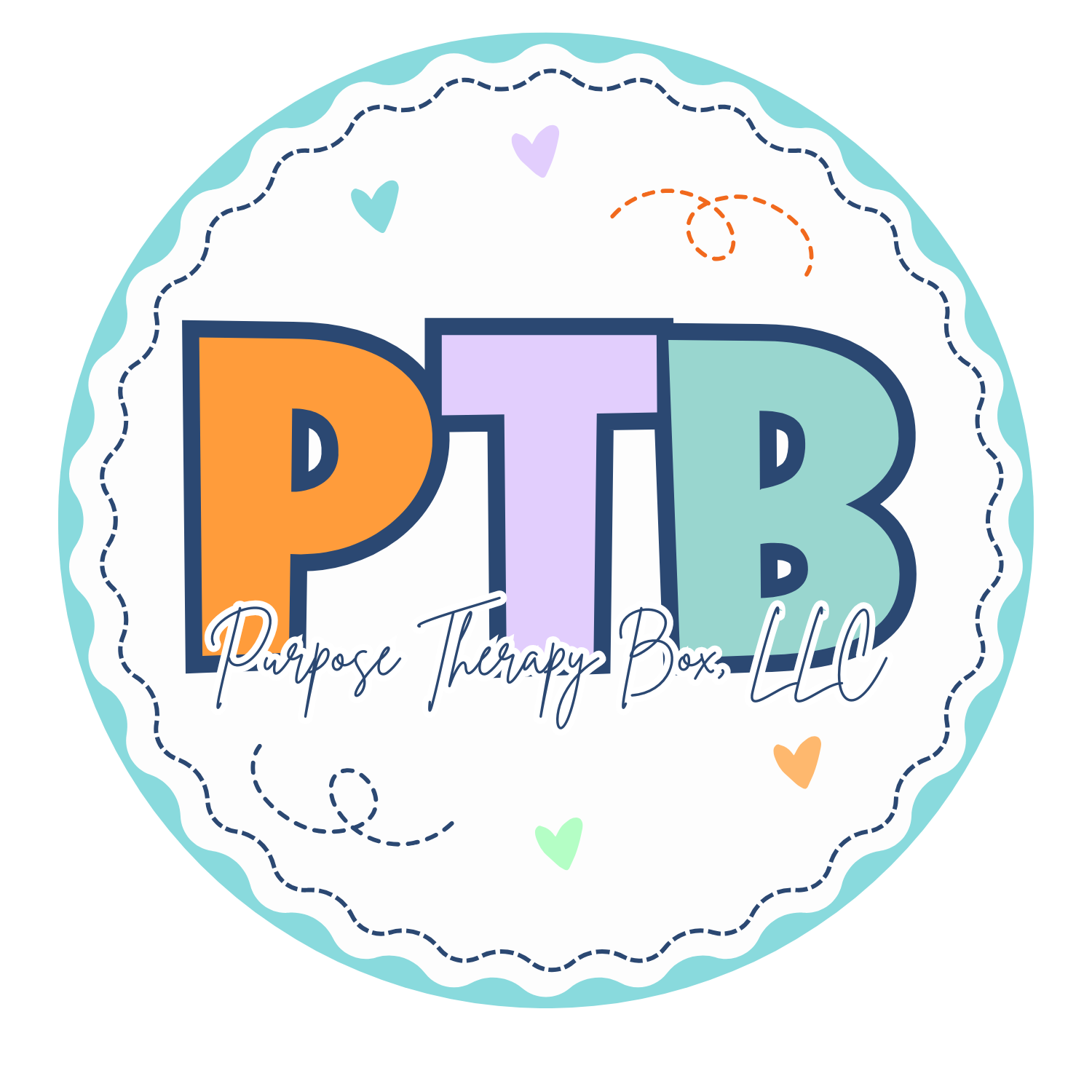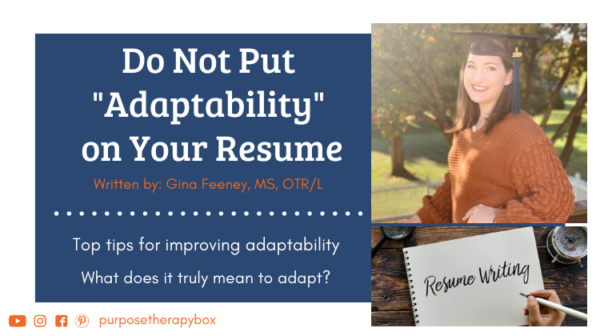If I looked at your current resume, I would bet all the cash in my wallet that “adaptability” is listed as one of your strengths. Luckily for me, I only have three bucks in there. Oh wait, never mind, it’s only two because I tipped the nice girl at Dunkin’ the other day. Well, the point remains, we all want to land that dream job by highlighting this skill. If you Google search the word “adaptability,” you may find a plethora of websites detailing the importance of adaptability in the workplace and how you can improve in this area. So, even though we all place “adaptability” front and center on our resume, have we actually mastered it? I think if the recent state of our country taught me anything, it’s that I had a lot of learning to do. Now, a full year and change into this pandemic and I can confidently say “adaptability” is a trait that I will bring to any employer. I also now realize that I should never have had this skill on my resume until I could truly bring it to the table. So how have I improved in this area? And more importantly, how can you improve and show off your new skill at work?
I want to go into a little background about me, but if you’re not interested in my story, you can jump down about three paragraphs to where I say “I want to detail…”.
Three years ago I made an influential life decision. I was just about half way through my five year Master’s in Occupational Therapy program and was contemplating how I wanted my post-collegiate life to look. I pondered practice areas and did my research. I asked questions, talked with friends, and reflected on my clinical experiences. I realized I wanted something fast-paced; acute care maybe? I also wanted something unique; do OTs practice in the emergency room? Should I have gone to school to be a physician’s assistant? I was getting a little concerned because most of my peers seemed to have found their OT niche and I still had no idea where I wanted to practice. But then I found military occupational therapy. I knew almost instantly that this was a perfect fit. I’ve always been an athlete and I love fitness. I’m stubborn, determined, and adore challenges. Yep, the military lifestyle had everything I wanted. And how could it be boring? So I researched a bit more and found that three branches offer occupational therapy: Air Force, Navy, and Army. I decided on the Army. This decision was reinforced when I spoke to a recruiter who detailed the various opportunities an Army career could give me. I also knew the Navy was out because I am absolutely awful at swimming.
I then spent the next 2 years focused on school, work, and fitness, while further researching OT in the Army, talking with my recruiter, and trying to orient my clinical experiences around my career goals. I began my graduate year in the Fall of 2019. I envisioned myself presenting my graduate research in front of a big audience, completing my last clinical in Texas at an Army hospital, and working part time until I could begin training in the Spring of 2021. Then March of 2020 hit and like many others, my life changed. School went virtual, my clinical got cancelled, I moved back in with Mom, and I’ve spent the last seven months nannying my nephews. 2020 left me feeling utterly deflated. Nothing went according to plan. I’m 24, living with Mom, and working as a nanny. I have a Master’s degree, in health care, in the middle of a pandemic! Why aren’t I working???? I felt stuck.
But through this process, I truly learned what it meant to adapt.
I want to detail some of my experiences from the past year and how they shaped into my top tips for improving adaptability. I truly believe the following principles can be generalized to personal and professional life scenarios to not only improve overall adaptability, but also relieve stress, anxiousness, and any negative emotions that seem to persist in the face of change.
Tip 1: Learn your weaknesses
2020 brought a lot of my weaknesses to the forefront, but one of the biggest weaknesses that was highlighted was my fondness of structure. When everything originally went virtual in the Spring of 2020, I felt lost in the lack of structure. I no longer had a set routine on my college campus. I could no longer escape to the gym when I was overwhelmed or needed to clear my mind. All of my graduate work transitioned to an online software I wasn’t that familiar with (not to mention my professors were lost, which made things infinitely more challenging). My planner had more crossed off than not.
I had always been one to plan everything to a “T”, but every time a plan changed, it brought on feelings of anxiousness and, at times, failure. It really dawned on me that scheduling my whole life (ie. meetings, get togethers, gym time, hobbies, etc) for exact dates and times was setting myself up for disappointment when things didn’t go exactly to plan. If, or more accurately, when things popped up out of the normal routine, I felt overwhelmed with trying to “fit it in the schedule.”
I always thought that adding structure to my life was a strength. Scheduling was something that allowed me to manage my time effectively, it allowed me to get more done, and it allowed me to excel in leadership. What I didn’t realize was that it was slowly sensitizing me to change. My life had been so structured for so long that I was losing my ability to adapt to sudden schedule changes. But, 2020 was so unpredictable. Through repeated disruption to my daily schedule, I learned that my tendency towards structure, which I always thought made me a good leader, could really be detrimental to my mental well-being when taken to the extreme. Because I was forced into working on this weakness and developing a strength out of it. I found a new way of organizing my daily life, that allowed for abrupt changes and doesn’t sacrifice productivity. I eventually transitioned from a weekly schedule to a weekly to-do list. Through removing structure, I discovered how to maintain productivity, while also leaving time for spur of the moment events. All of that said, deadlines are still important; I would not advise missing those.
Whether you weakness is the need for structure, time management, disorganization, inability to take risks, lack of focus, stubborn, overly critical, or something else, taking the time to work on your weaknesses over time can not only lead you to an innovative solution, but also help manage the negative health effects of living life within the constraint of your weakness. Lastly, it is important to remember that improving a weakness takes time. Personally, the pandemic made me slow down and continue to work on my weakness over many, many months.
Bottom line: Gradually, but repeatedly, pushing yourself out of your comfort zone creates accumulative positive effect on your overall life.
Tip 2: Accept an unknown timeline
For some of you, Tip 1 may be closely linked with Tip 2: Accept an unknown timeline. While I struggled through improving my need for structure, I realized that 2020 brought on increasing feelings of anxiousness because I wasn’t where I “should be” in life. As mentioned above, I moved back in with Mom and started working as a nanny straight out of finishing my master’s program. I felt stuck in a routine that I did not envision for myself 5 years ago. Even a year ago, I thought I would be in a much different place right now. But 2020 made me accept that the timeline I had envisioned for myself was not a “sure thing.” In fact, 2020 opened my eyes to the fact that there are circumstances out of my control that influence my life plan.
When my last clinical rotation got cancelled in the Spring of 2020, I began worrying about my graduation being postponed from August to December. Long story short, if graduation was delayed, I wouldn’t be able to submit my Army application in time to be accepted in the 2021program (they only accept applications once a year). I needed a new placement ASAP. But, as a student, I wasn’t allowed to contact clinics and secure my own placement. I needed to wait for our clinical coordinator to find one for me. I felt helpless. I felt the career timeline I had so carefully planned slipping away and there was nothing I could do about it.
So what could I do? As I explored this question a little more, I realized I was searching for a way to gain control. I wanted a way to control the situation. But when it came down to it, I couldn’t control the situation. I had to accept that I didn’t know when I would achieve my goal of becoming an Army OT. Once I was able to accept that, I found a new question to focus on: “How can I achieve my end goal within my current circumstances?” In other words, what do I have control over right now to put me closer to my end goal? Once I faced the fact that my clinical placement was out of my control, I was able to fully recognize what was in my control. Spoiler, my coordinator found a new placement for me and I did, in fact, graduate on time.
Bottom line: Accept that there are things out of your control in order to focus on the things that are.
Tip 3: Read books
I cannot stress this tip enough. Read read read. How many of us get out of high school or college and pack the books away? Think back to some of your classes in school. How well did you do in the classes that assigned mandatory reading? Or the classes where you read more on your own volition? I know I [almost] always did better in the classes when I read more. After finishing school, I took a 3-month hiatus from reading. I think I was burned out from all the reading I did to pass my board exam. Now that I have gotten back into it, I realize how thought-provoking reading is. Growing up, I enjoyed reading fiction, but recently, I have been reading self-development books. I’ve noticed that even the books, or parts thereof, that I don’t personally agree or identify with are incredibly insightful. Since reading more regularly, I’ve identified several positive benefits to the habit: I look at things from multiple perspectives, I challenge the “norm” more, I spend more time being present in the moment, and I have more thoughtful conversations with my family and friends. I could go into detail about why all of those things have improved my adaptability, but it boils down to improvements in: problem solving, creative and logical thinking, the ability to see multiple paths to the same end, and the ability to generalize situations to new scenarios. These skills have improved my personal relationships and I strongly believe they will generalize to many other areas of my life, including my work life.
I wouldn’t only recommend reading self-help. Different book genres will have different benefits. For example, fiction books allow adults to improve their creativity and imagination. This may generalize over to their ability to solve an unforeseen issue at work. Political books (all throughout the spectrum) allow one to think about social and financial concerns from a perspective much different from those of one’s parents or caregivers, who have often ingrained political opinions in their children from a young age. In turn, this improves relationships with friends, family, and coworkers, who may see things differently. This is particularly important when changes occur at work. For example, a person may not agree with the decisions a new boss is making, but is able to recognize the difference in perspective and be more inclined to learn about it instead of opposing it from the start. Detective or mystery books promote problem solving and can improve mindfulness and relaxation. Think about it as an exercise. Every time your heart rate goes up from reading the suspenseful story, or you feel a little “on edge”, your body needs to practice relaxation to return your central nervous system to a resting state. You may take some deep breaths to calm down or practice visualization of a “happy place”. Each time you do so, your body gets better at managing stressful situations. Think about how valuable that is in the face of change!
Bottom line: Read. Read a lot because it improves mental functioning and challenges the body and mind similarly to the way changes in life do.
Tip 4: Ask for help
Are you guilty of wanting to do everything by yourself? Chances are, if you’re in the OT field (or related fields), you probably emphasize independence in your and your clients’ lives. Yeah, me too. I pride myself in being independent and being able to do everything on my own. However, I started nannying a 2-year-old full time during the pandemic. You know…”the twos.” Let me tell you, this little boy is a sponge for knowledge and LOVES doing things on his own. He helps unload the dishwasher, starts the “circle vacuum and square vacuum” (robot vacuum and mop)on his own, and gets his own dishes at meal times. He is absolutely adorable and I often tell his parents how cute he is during the day or what skill he recently picked up on. But through watching this little, independent boy, I realized how ANNOYING it is when he won’t accept help. I’m talking “struggle with this toy box lid for several minutes until he has a breakdown” behavior. Then it dawned on me. Embarrassingly, I realized I was exactly like this. I’m serious. I literally went home one day and apologized to my mom for my 24 years of stubbornness and unwillingness to be helped.
So this realization, along with a very insightful book*, persuaded me to start accepting help, no matter how “damaging” to my pride. I honestly think this is the most challenging tip I have for you. It’s hard to admit you need help. It’s natural for pride to take over in situations where we feel incapable. Think about it. Species evolve to eliminate their weaknesses. A wild animal, for instance, will use their strengths to stay alive, while concealing their weaker attributes. If they are too weak, the species will either evolve or die out. Because humans have the ability to thinkin complexities, we connect strengths with pride and weaknesses with shame. It’s not pleasant to feel shame. As a result, we hide our weaknesses. Or we try to ignore them: “Nah, I got it.” “Thanks for the offer, but I can do it.” But the difference between humans and animals is our civility. In truth, we don’t need to hide our weaknesses because where one human is weak, another is strong. And humans love to help each other. When was the last time you offered to help someone? Or someone offered to help you? Margaret Mead (1901 - 1978), an American anthropologist, once said that a “healed femur” was the first sign of civilization in human history. She went on to explain that this was a sign that another human being had to care for the injured human until they recovered and could protect themselves. This is what sets us apart from many animals.
Here are a few ways I have asked for help over the past several months: (1) I asked my mom to help watch my nephews so I could visit other family for a few days, (2) I asked a friend to start a jogging routine with me to keep me accountable, (3) I sought out professional nutrition coaching, and (4) I asked a friend to teach me a skill I know I will need in the Army. Here are the ways those requests helped me accomplish something that would have been challenging on my own:(1) I was able to visit multiple family members, (2) I’ve been jogging more, (3) I’ve improved my nutrition in ways I couldn’t accomplish on my own, and (4) I’m learning something new that I wouldn’t have learned by myself.
Bottom line: Humans are more successful when they use the strengths of those around them.
So whether you have adaptability on your resume or not, the tips above are incredible strategies for improving your ability to adapt to changes in your personal and professional lives. Learn and improve on your weaker skills, focus on what is within your reach, broaden your scope of knowledge and thought through literature, and accept support from those around you. Once you improve these four habits, mastering adaptability won’t be far behind. With 2020 behind me, I can confidently say that 2021 will bring on its own plethora of challenges, as I continue to expand my professional skills as Second Lieutenant Feeney in the US Army.
*Extreme Ownership: How US Navy Seals Lead and Win, Jocko Willink & Leif Babin
Gina became a registered and licensed occupational therapist in October of 2020. Her graduate thesis focused on designing digit prosthetics for amputees and was recently published in The Internet Journal of Allied Health Sciences and Practice. Gina has professional experience in the fitness and home health industries, but recently found out she will be continuing her professional career as a Second Lieutenant in the US Army, serving as an occupational therapist. She is thrilled to begin Army training and to serve the brave individuals that risk their health and well-being for the safety of our nation.



